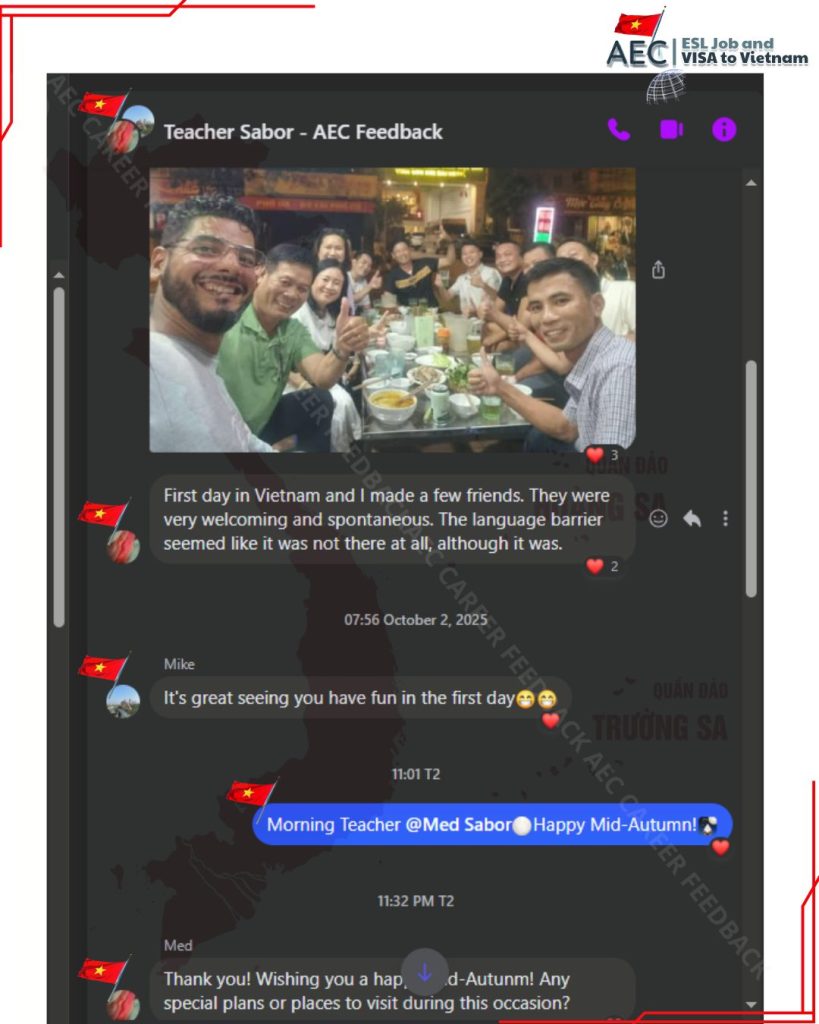

1. Paperwork & Legal Procedures
Navigating Vietnam’s visa, work permit, and residence processes can be confusing — each step often involves multiple documents and official stamps. Make sure you clarify who handles what (you or your employer), prepare legalized papers early, and keep copies of everything. Patience is your best ally.
2. Housing & Daily Living
Finding accommodation that matches your expectations takes time. Many rentals are basic — no fridge, no washing machine, sometimes even no bed. Deposits can be 3–6 months’ rent, and utility bills are usually extra. Always confirm what’s included before you move in.
3. Transportation & Mobility
Motorbikes dominate Vietnam’s roads — chaotic, thrilling, and, at first, overwhelming. Taxis and Grab may not be available in smaller towns. Learning basic traffic rules (and courage!) will make your daily commute much easier.
4. Language & Communication
English is not widely spoken outside major cities. Small misunderstandings can happen anywhere — at the market, in a taxi, even at your school. Learning a few basic Vietnamese phrases will go a long way in earning smiles and smoother days.
5. Cultural Adjustment
Social norms and work culture differ from Western expectations. Schedules may change suddenly, hierarchy can be subtle but important, and “yes” doesn’t always mean “yes.” Approach things with curiosity rather than judgment — it’ll make your experience much more enjoyable.
6. Food & Health
Vietnamese food is delicious and diverse, but local diets may not suit everyone. Vegetarian, halal, or allergy-friendly options can be limited outside big cities. Learn to cook some of your own meals, and always keep basic medicine for stomach or weather-related issues.
7. Financial Planning
Most employers expect teachers to cover their daily expenses, visa runs, and initial setup costs. Salaries may not be paid in full during the training or settling-in period. Have enough savings to stay comfortable during your first month or two.
8. Weather & Environment
Vietnam’s climate changes drastically by region — humid in the south, cold and misty in the north, and unpredictable in between. Power outages and flooding can happen during rainy seasons. Pack smart and stay flexible.
9. Mental & Social Well-being
Loneliness and culture shock are common, especially in smaller towns. Stay connected — join local expat groups, talk to other teachers, explore your surroundings. Remember: feeling lost at first is normal; it means you’re growing.
10. Work & Expectations
Schedules, teaching hours, or training periods may shift as schools adjust placements. Contracts often evolve with time — clarify everything before you arrive and keep communication open. Flexibility will save you frustration and help you earn trust quickly.
Summary Insight: Vietnam is not a postcard — it’s a real, living, changing place. If you come prepared, flexible, and curious, the challenges won’t stop you — they’ll shape you.



